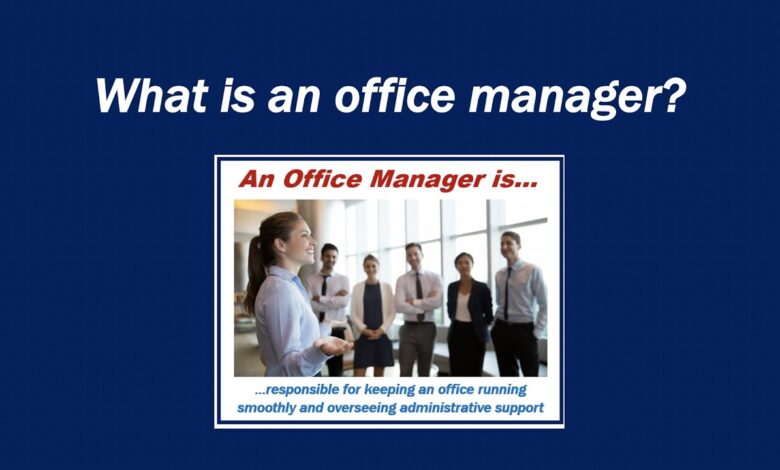
Introduction
In today’s fast-paced and dynamic business world, the role of an office manager has evolved significantly from its traditional administrative roots. Office managers are now instrumental in creating efficient, organized, and collaborative work environments that contribute to the overall success of an organization. This article delves into the multifaceted responsibilities and skills required of a modern office manager.
The Evolving Role of an Office Manager
Gone are the days when office managers were solely responsible for answering phones and managing paperwork. In contemporary workplaces, office managers have become key players in fostering a positive office culture, streamlining operations, and ensuring the smooth functioning of day-to-day activities. They have transitioned from mere administrators to strategic partners, working closely with top management to align office processes with broader company goals.
Key Responsibilities
- Facilities and Operations Management: Office managers oversee the physical workspace, ensuring it is well-maintained, safe, and conducive to productivity. This involves managing office supplies, equipment, and maintenance services, as well as organizing workspace layouts to optimize efficiency.
- Team Collaboration and Communication: Modern office managers facilitate effective communication among team members, departments, and senior leadership. They may coordinate meetings, manage calendars, and employ collaboration tools to enhance team interaction and knowledge sharing.
- Budgeting and Financial Management: Office managers play a crucial role in budget planning and expense management. They track office-related expenses, negotiate contracts with vendors, and identify cost-saving opportunities while ensuring the office’s financial health.
- Human Resources Support: Office managers often serve as a liaison between employees and HR departments. They may assist in onboarding new hires, manage employee records, and address basic HR-related queries.
- Event Planning and Coordination: Organizing office events, workshops, or training sessions falls within the office manager’s purview. They ensure these events run smoothly, fostering employee engagement and team building.
- Technology Integration: In the digital age, office managers must be tech-savvy. They are responsible for implementing and managing office software, communication tools, and IT infrastructure, thus contributing to seamless digital workflows.
- Conflict Resolution and Problem Solving: Office managers are adept at handling interpersonal conflicts and addressing day-to-day operational challenges. They serve as a point of contact for employees seeking resolutions to various issues.
Essential Skills for Success
- Communication Skills: Effective communication is paramount for an office manager, as they interact with employees, vendors, and senior executives on a daily basis.
- Organizational Skills: Juggling multiple tasks and responsibilities requires exceptional organizational abilities to maintain efficiency and order.
- Adaptability: Office environments are ever-changing. A successful office manager can adapt to new technologies, processes, and challenges.
- Leadership and Team Management: Office managers often supervise administrative staff, necessitating strong leadership and team management skills.
- Problem-Solving Abilities: Quick thinking and resourcefulness enable office managers to navigate unexpected challenges effectively.
- Attention to Detail: From managing budgets to coordinating events, even small oversights can lead to significant consequences.
Conclusion
The role of an office manager has evolved into a multifaceted, strategic position that goes beyond administrative tasks. Modern office managers are integral to creating productive, collaborative workspaces and contributing to a positive office culture. Their responsibilities encompass everything from facilities management and budgeting to team coordination and technology integration. With the right skills and approach, office managers play a vital role in the success of their organizations in today’s complex business landscape.











